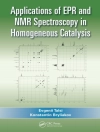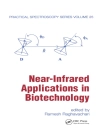This book provides a unique overview of the applications of Mössbauer spectroscopy in chemistry and related fields. It shows how powerful and versatile the method is in giving information on electronic structure, structural insights and solid-state effects of chemical systems.
قائمة المحتويات
Chapter 1: Application of Mössbauer Spectroscopy to Energy Materials
Chapter 2: Mössbauer Spectral Studies of Iron Phosphate Containing Minerals and Compounds
Chapter 3: Mössbauer spectroscopic investigation of Fe-based silicides
Chapter 4: Mössbauer spectroscopy of catalysts
Chapter 5: Application of Mössbauer spectroscopy in studying catalysts for CO oxidation and preferential oxidation of CO in H2
Chapter 6: Application of 57Fe Mössbauer spectroscopy in studying Fe-N-C catalysts for oxygen reduction reaction in polymer electrolyte membrane fuel cells
Chapter 7: 197Au Mössbauer Spectroscopy of Thiolate-protected Gold Clusters
Chapter 8: Au Mössbauer spectroscopy of gold mixed-valence complexes, Cs2[Au IX2][Au IIIY4](X, Y = Cl, Br, I) and [NH3(CH2)n NH3]2[(Au II2)(Au IIII4) (I3)2] (n = 7, 8)
Chapter 9: Temperature- and photo-induced spin-crossover in molecule-based magnets
Chapter 10:Developing a Methodology to obtain new Photoswitchable Fe(II) Spin Crossover Complexes
Chapter 11:57Fe Mössbauer spectroscopy as a prime tool to explore a new family of colorimetric sensors
عن المؤلف
Yann Garcia studied chemistry and physics at the University of Bordeaux (France), where he also completed his Ph D degree with the late Prof. Olivier Kahn. He was a postdoctoral fellow at University of Mainz (Germany) with Prof. Philipp Gütlich. He joined the UCLouvain (Belgium) in 2001 where he is currently a professor of analytical chemistry. His research interests span spin crossover materials, photomagnetic molecular switches, hybrid materials and chemical applications of Mössbauer spectroscopy.
Junhu Wang studied radiochemistry at Lanzhou University (China). He was awarded Master’s and Ph D degrees (jointly trained with Japan Atomic Energy Research Institute) at Toho University (Japan) in 1998 and 2002, respectively. He is full professor & group leader at Dalian Institute of Chemical Physics (DICP) and Chinese Academy of Sciences (CAS). His main research fields are Mössbauer spectroscopic applications and nanometer-sized catalytic materials.
Tao Zhang received his Ph D in physical chemistry from DICP, Chinese Academy of Sciences, in 1989 under the supervision of Prof. Liwu Lin. After postdoctroal research with Prof. Frank Berry at Birmingham University, he founded his own group at Dalian Institute of Chemical Physics in 1995, where he also became full professor. He was an invited professor at University of Poitiers (France) in the period of 2006-2007 and has been a guest professor at University of Namur (Belgium) since 2011. He was the director of DICP in the period of 2007-2017. He was officially selected as Academician by the Chinese Academy of Sciences in 2013. In 2017, he was promoted as a vice president of Chinese academy of sciences. Over the past decades, Prof. Zhang has successfully designed a great number of nano and subnano metallic catalysts for applications in energy conversion.












